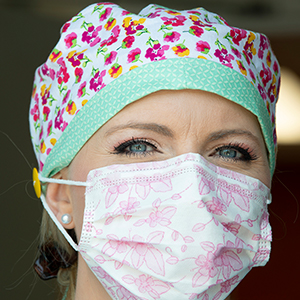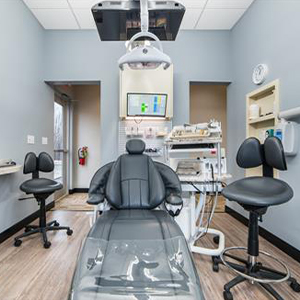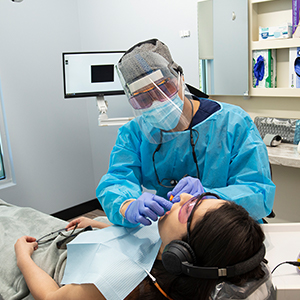
About 54,000 people are diagnosed with oral cancer in the United States every year. As with many other types of cancer, early detection and treatment are key to effectively managing the disease and improving treatment outcomes.
Throughout the year, and especially during Oral Cancer Awareness Month in April, individuals need to pay attention to any signs or symptoms of oral cancer and seek care if they notice anything out of the ordinary. Individuals can partner with their dentist to monitor signs of oral cancer and take charge of their health.

Dental Care in Arlington Heights. Dentists and dental hygienists at Westgate Dental Care are passionate about all facets of dentistry and oral hygiene – from preventive teeth cleanings to straightening smiles to helping patients manage periodontal disease to proactively screening for oral cancer. Westgate Dental Care provides complimentary oral cancer screenings during a routine cleaning once a year for all patients over the age of 18. Dental hygienists use the traditional method of a visual and tactile screen to identify potential lesions or areas of concern.

Westgate Dental Care also takes its screening process one step further by using VELscope® technology to search for oral cancer not visible to the naked eye. The technology uses a light to look inside patients’ mouths. If the light shines as a fluorescent green throughout the mouth, it indicates that no cancer is present at the time. If suspicious areas are present, they will show up as dark lesions against the green light.
“This technology is so beneficial because we are able to see potential oral cancer right at the onset, which is the best time to catch it. The earlier we see it and patients can get treatment, the better the outcome,” said Maria Campillo, dental hygienist at Westgate Dental Care.
Oral cancer can develop on the lips, tongue, cheeks, hard or soft palate, floor of the mouth, or the pharynx. When performing visual screenings, hygienists may notice red or white or a combination of red and white patches in the oral cavity that could be indicative of oral cancer. Campillo said these are signs that patients should be on the lookout for as well.
“Anything that doesn’t seem right, such as a lesion that doesn’t go away after two weeks or keeps coming back, red and white patches in the mouth, or even a persistent sore throat, hoarseness or voice changes, are all things patients should pay attention to,” Campillo said. “It’s always important to be screened for oral cancer, but if you notice anything out of the ordinary, it’s even more important to have it looked at.”
Patients may also experience other symptoms associated with oral cancer, including areas that swell or thicken or are bumpy around the lips, gums or other areas of the mouth, pain/tenderness in the mouth, head, or neck, bleeding in the mouth with no other known cause, chronic sore throat, ear pain, difficulty chewing or swallowing and feeling like there is something caught in the back of the throat.
The risk of developing oral cancer can be heightened due to several factors including using tobacco products, alcohol consumption and sun damage to the lips. Certain strains of the Human papillomavirus (HPV) are also linked to the development of oropharyngeal cancers.
To help prevent oral cancer, individuals are encouraged to stop using tobacco products, reduce alcohol consumption, get vaccinated against HPV, practice safe sex and protect their lips from sun exposure by using a protective lip balm made with sunscreen.
Of course, regularly seeing one’s dentist is a key component of oral cancer prevention. Your dental team is often the first to notice potential signs of oral cancer during routine cleanings and exams. Ideally, if gum disease is not present, patients should book semiannual cleanings, which not only keeps teeth and gums healthy, but gives dentists and hygienists more opportunities to spot any signs of cancer early on.
“In addition to looking for sores, lesions or red and white areas that weren’t present before, we’ll also perform an extraoral cancer screening that includes palpating the cheeks, lips, tongue, lymph nodes, salivary glands and throat to check for lumps or anything that feels abnormal,” Neitz said.
If the team at Westgate Dental Care suspects that a patient could have oral cancer, the team quickly moves into action, following a standard protocol. The practice sends photos captured with VELscope to oral surgeons for review. A biopsy may be performed on areas of concern, and a diagnosis is made. From there, patients receive necessary treatment. Post-treatment, they continue to be routinely screened each year (or more if recommended) at Westgate Dental Care.
“It’s comforting to be part of a practice that knows oral cancer is out there and is proactively screening for it. We’re doing everything we’re supposed to in order to catch it early and give patients the best possible outcome,” Campillo said.
If you are concerned about oral cancer or need to speak to Westgate Dental Care, call (847) 577-7171 to set up at appointment. For more information about the practice, visit westgatedentalcare.net.
